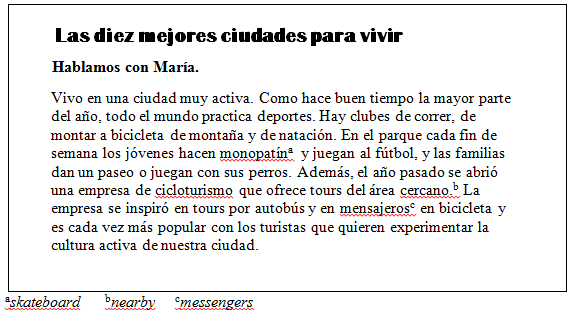After they heard the number, subjects began counting backward by threes (so they couldn't repeat the syllable). After only 18 seconds of delay, their memory scores fell to zero. After 18 seconds without rehearsal, the short-term memories were gone forever! Keep this in mind when you get only one chance to hear important information. For example, if you are introduced to someone and the name slips
out of STM, it's gone forever. Of course, you could try saying something like, "I'm curious, how do you spell your name?" Unfortunately, the response is often an icy reply like, "B-O-B S-M-I-T-H, it's really not too difficult." To avoid embarrassment, pay careful attention to the name, repeat it to yourself several times, and try to use it in the next sentence or two-before you lose it. Elaborative rehearsal, which makes information more meaningful, is a far better way to form lasting memories. Elaborative rehearsal links new information to memories that are already in LTM. When you are studying, you will remember more if you elaborate, extend, and think about information. As you read, try to frequently ask yourself "why" questions, such as, "Why would that be true?" Also, try to relate new ideas to your own experiences and knowledge. Elaborative rehearsal is
a. effective only for simple material.
b. another name for maintenance rehearsal.
c. more effective than maintenance rehearsal.
d. less effective than maintenance rehearsal.
C
You might also like to view...
Which of the following is an activity in the reflecting step?
a. write a summary of the reading b. identify questions you still have about the topic c. research additional questions d. all of the above
¿En qué sentido es muy activa la ciudad de María? __________________________________

Identify the error: After every dinner party, Susan argue that she paid too much of the bill
a. argue b. paid c. too d. no error
WIE SAGT MAN DAS AUF DEUTSCH?
You have a cold, haven’t you? __________________________________________________________________